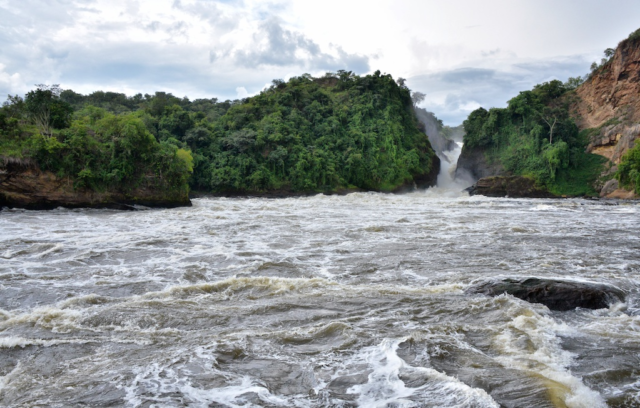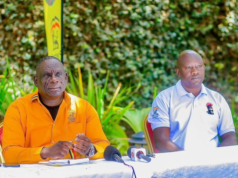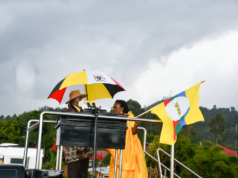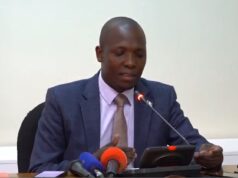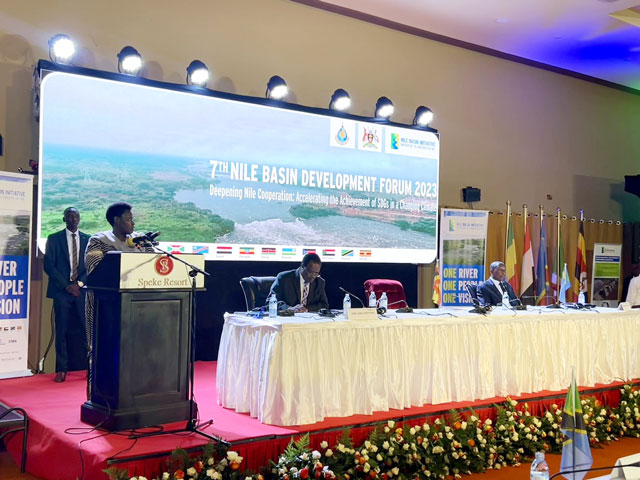
President Yoweri Museveni has called on Egypt to shift its focus toward increasing the quantity of water in the Nile rather than strictly adhering to the Nile Waters Agreements, which have restricted equitable use of the river across the basin.
During his remarks at the ongoing 7th Nile Basin Development Forum (NBDF), President Museveni, represented by Vice President Jessica Alupo, stressed the importance of prioritizing increased water quantity in the Nile over these agreements, particularly the Khartoum Agreement.
The Ugandan leader believes that shifting the focus to environmental conservation and protection will enhance the volume of water in the Nile, enabling all basin countries to use the river equitably for production.
Museveni’s strategy could lead to increased production and greater use of electricity as a clean energy source, benefiting the basin while reducing biomass energy usage and preserving biodiversity in the Nile River catchment area.
The utilization of Nile River waters across the basin countries has been a contentious issue between downstream and upstream countries, resulting in several agreements, none of which have gained unanimous approval from all basin countries.
The major differences stem from two key agreements. The Anglo-Egyptian Agreement of 1929 allocated 48 billion cubic meters of Nile water annually to Egypt, with Sudan receiving 4 billion cubic meters within the same period.
This agreement also granted Egypt veto powers over construction projects on the river and its tributaries to minimize interference with the Nile’s flow. There has recently been a stand-off between Egypt and Ethiopia over Addis decision to build a dam on the Nile.
The other significant agreement is the famous Khartoum Agreement of 1959, a bilateral agreement between Egypt and independent Sudan, which increased water allocations to 55.5 billion cubic meters for Egypt and 18.5 cubic meters for Sudan. Together, these agreements are collectively referred to as the “Nile Waters Agreements.” Egypt has long asserted its rights to Nile waters based on these agreements.
However, upstream countries, including Uganda, have deemed these agreements inappropriate, as they were not adequately represented and have their own needs for the river’s water. It’s worth noting that the Nile is estimated to produce 84 billion cubic meters of water annually, and the basin has an estimated population of 487.3 million people.
Museveni’s remarks come at a time when Egypt has reduced its participation in the Nile Basin Initiative (NBI), an organization it helped establish in 1999. The NBI protocol was signed by all basin countries except Eritrea to enhance cooperation on the use of common Nile basin water resources.
To foster cooperation and unity among NBI members, they developed the Cooperative Framework Agreement, considered a more inclusive legal and institutional framework for governing the basin and its water resources. However, only six out of the ten NBI member states have signed this agreement.
At the same meeting, Prof. Patrick Loch Otieno Lumumba alias PLO Lumumba, a renowned Pan-Africanist and scholar, challenged the NBI to move out of boardrooms and offices and engage at the grassroots level to address matters directly affecting ordinary people in the region. He emphasized the need for technocrats to work directly with the people affected by the river and the decisions made around it.
Lumumba also called for a deeper transboundary relationship among basin countries, with each state taking into account the effects of its projects on the Nile and its neighbors, emphasizing the shared responsibility of responsibly using the river.


